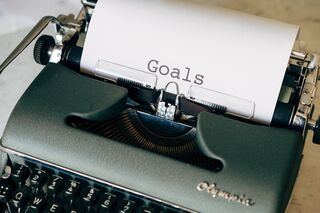Motivation
The "If-Then" Rule That Increases Your Chances of Success
How to motivate yourself to stick with a new habit and reach your goals
Posted July 3, 2020 Reviewed by Matt Huston

How many times have you resolved to improve your habits and set goals? Or how often have you promised yourself to eat healthier, lose weight or exercise more? Then a month down the road, your vows are distant memories. You’re not alone. It’s easy to let your intentions slide when you have so much on your plate.
But there’s a magic solution that can help you stick to your personal and professional goals. It’s called the if-then plan—a surefire strategy that keeps you from getting sidetracked and builds habits by helping you stick to the action part of a challenging goal.
Bake It In
The baked-in strategy of the if-then plan inoculates you from a self-defeating “what-the-hell-attitude.” Research conducted by Peter Gollwitzer at New York University found that having an action plan for what you intend to do before you encounter a situation could triple the chances of accomplishing goals. One study found that 91% of people who used the if-then plan stuck to their exercise plan compared to 39% of those who didn’t use the formula: If X happens (the event), then I’ll do Y (my action). You’ve got to admit those are pretty good odds. Let’s say you’re trying to avoid procrastination on a job task. Your plan to be more timely goes from a vague, “I will stop procrastinating,” to applying “If X happens, then I’ll do Y.” The X is the situation and Y is the action you take when X occurs. Plugging your idle vow to stop procrastinating into a specific action plan might look like this: “Every time I have an important project due, I will finish it two days before the deadline to give me a cushion that accounts for unexpected interruptions.”
Do You Believe In Magic? It’s a No-Brainer
The if-then rule has worked magic in my personal and professional life. My plan to exercise regularly went from a vague “I will start exercising” to “Every Tuesday and Thursday morning at 8:00 a.m., I’ll meet my personal trainer at the gym for a one-hour workout.” And I’ve been at it ever since. The if-then plan is not really magic. Of course, you knew that all along. So why does it work? Being specific about when and where you will act on your goal (the if) automatically alerts your brain to be on the lookout for a specific situation (the if) and the action that must follow (the then). Without an automatic reminder, your brain gets sidetracked from remembering the intended behavior and constantly calculates whether an event is the right one for carrying out the intended action.
Suppose you’re trying to avoid fried foods. So you make an if-then plan that might look like this: “If I see fried foods on a restaurant menu, then I’ll avoid them.” Now you have hardwired the situation, being at a restaurant and seeing fried foods, directly to the action: avoid them. Your brain develops a heightened vigilance for the if situation. Once triggered, it is automatically equipped with the prepared response of avoiding fried foods (the then action). Armed with an if-then plan, you’re more apt to carry out your goal without struggling to consciously think about it.
Target Practice
The motivational speaker Zig Zigler said, “You can’t hit a target you cannot see, and you cannot see a target you do not have.” So here’s some target practice for you. Set a target to change a bad habit or to meet a goal you’ve been considering. Then boost your chances of follow-through by plugging the goal into the if-then formula: If X happens (the event), then I'll do Y (my action).
References
Gollwitzer, P. M. (2018). The goal concept: A helpful tool for theory development and testing in motivation science. Motivation Science, 18, 185-205.


